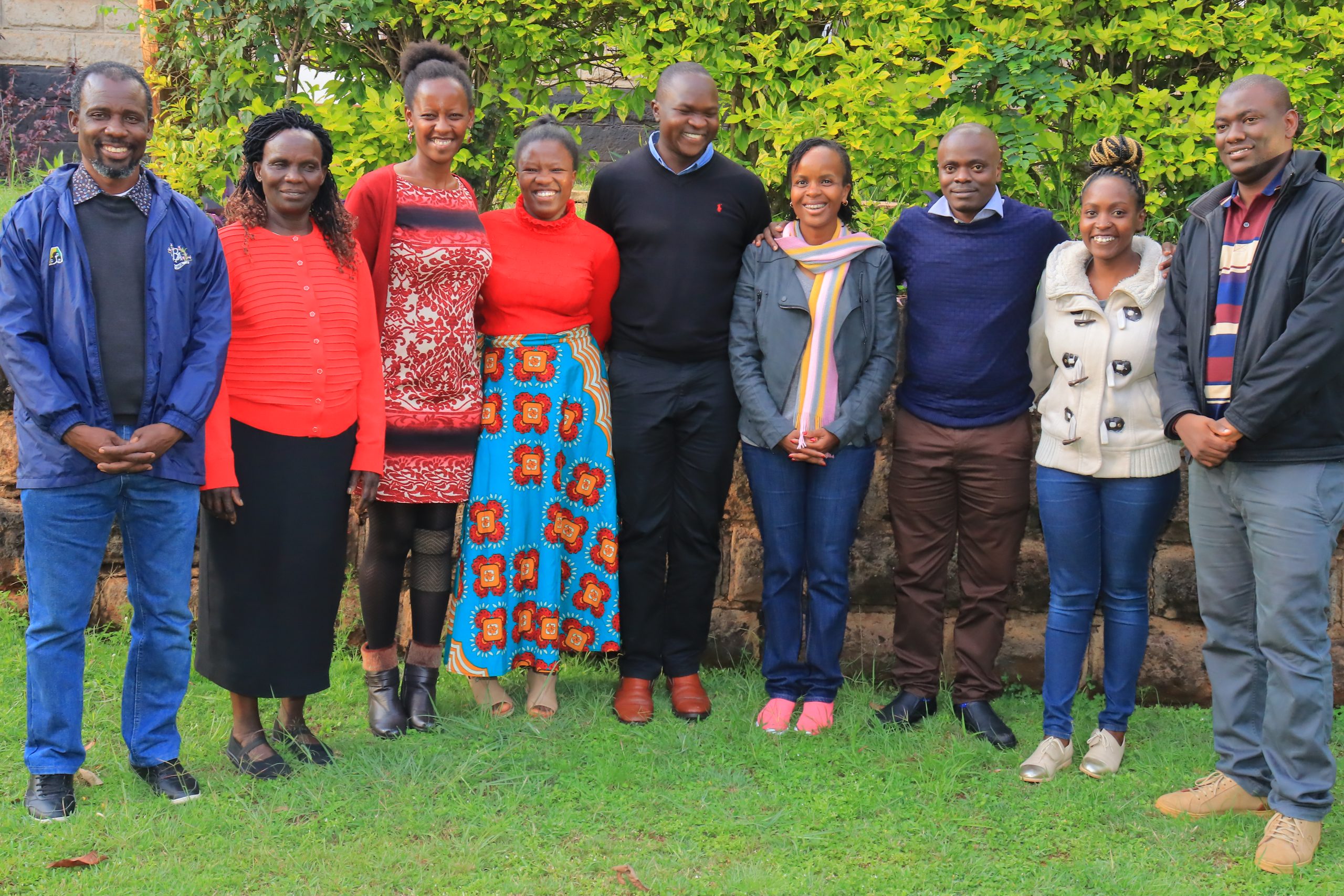By Dismas Okombo
Foremost, forgive the lateness of this entry. Due to Corona pandemic, of which I hope you are keeping safe indoors, the residency had to end abruptly on the night of 19th. But before then, from the last diary entry to yesternight, I have been consumed in writing two essays, as was required of each resident, towards the PenPen residency anthology.
I am uncomfortable with farewells, especially in abrupt departures as was the case. So, I will strive to maintain this journal entry on the happy sides; and hope that as I write of their kind smiles, of their wild laughs, and of their dance moves, my heart might once again relive the warmth of their company.
***
The Writers Mingle has ended and we are escorting our guests to the bus stop. Of the residents, only Fiske is not with us. She is experiencing some slight headaches and is sleeping back in her room. Defying the chilly evening, our animated voices disturbs the still ambience and echo through the woods. At the bus stop, goodbyes are whispered: “Till September in Tanzania for the conference.” Friends depart. As Penboss [Anthony] and Penhost [Kola] return to the residency, we, Rachael, Tom, Hassan, Esther and I, head to the shop. We don’t know it yet, but this is our last visit to the shop together.
Intending to express her desire to buy bread, Rachael fumbles with the three Swahili words Esther has just taught her: “Mimi nataka mkate.” Her intonation is distinct with comical innocence. I muffle my laugh. Hassan and Tom are grinning, anticipating the shopkeeper’s reaction. Esther bursts out in wild laughter, and everyone joins her. Even the shopkeeper; her laugh gentle and enjoyable. Watching the shopkeeper’s facial contort with joy, I can tell that amidst the corona panic, Rachael’s Swahili is a pleasant an unexpected tickle to her.
“Ask her the bread price,” Esther tells Tom, Tom is from Rwanda and his expanse of Swahili is limited to the hakuna matata phrase. At this directive, Hassan shakes with laughter, and we turn our stares at him. In between fits, he manages to say: ‘Ask her the bride price.’ Soulful laughs rent the tiny, dimly lit shop again. Then, Tom leans and momentarily stares at the shopkeeper through his thick spectacles. He is still translating Esther’s instruction; I think to myself while toying with a ten shillings coin in my khaki’s left pocket. Suddenly, with an outburst of enthusiasm, he enquires from the shopkeeper: “Mkate ngapi?” -How many breads?
Hassan is from the coast and his Swahili is impeccable. He immediately detects the mistranslation in Tom’s request and starts to laugh, his mannerisms controlled. [Among the residents, Hassan is dubbed the minister of zen. And for the best mental image of him, simply imagine a smiling, heavily bearded man in a sukhasana, meditation, pose.] Esther and I only realize the mistranslation when the shopkeeper replies: “Mimi ata ukitaka crate moja nitakuuzia tu.” -if you want a whole crate, I’ll just sell it to you. Again, the shop fills with laughter. Pleased with her tender sarcasm, the shopkeeper laughs the loudest.
When Tom and Rachael have exhausted their Swahili vocabulary, and the bread has been bought… Wait. Hell no! I can’t forget Rachael’s signature line: ‘Punguzia mimi.’ -Reduce for me. So, the shopkeeper finally discerns Tom’s intended message and tell us that one loaf is fifty shillings. Rachael, her lips twitched in a failed whistling attempt, shakes her head and comes forward. She begins to negotiate the price with the shopkeeper, constantly repeating: “Punguzia mimi.” Uncontrollable with laughter, the shopkeeper teases her back, mimicking her innocent accent, but maintains her price.
Aya, when Tom and Rachael have exhausted their Swahili vocabulary, and the bread has been bought, I contemplate on using the ten shillings to buy painkillers for Fiske. But before I make up my mind, Esther produces some amount and request the shopkeeper for painkillers. She is the gentlest of us all. Through the dark path, intermittently lit with security lights, we walk back to the house. Laughter on our lips, joy in our eyes, warmth in our hearts. When we reach the house, Kola is waiting for us with the update: “Due to the coronavirus, Kenya is about to go on lockdown. It’s unfortunate that the residents from outside Kenya must travel tomorrow.”

***
As the unstoppable time chimes forward, no doubt, these fresh memories will become distant and distant. Perhaps, it is most likely that we might never meet again. That is the way of the universe. Amidst the chaos, chains of events align themselves to create a brief moment of bliss. But however quickly that moment slips away, however faint the memories become, we never remain the same; we never forget the taste of bliss. For, now onwards, when I catch a glimpse of KICC, I will remember that once I stood on its helipad with you; when I walk the Peace Path at the Nairobi Museum, I will remember that once I walked those steps with you. And should sometimes nostalgia tease my heart, the songs we listened to during cultural nights will keep me company.
Heartfelt gratitude to the Sponsors and co-sponsors of PenPen residency, the leadership of African Writers Development Trust and Writers Guild Kenya.
Music I heard with you was more than music,
And bread I broke with you was more than bread…
~From the poem Music I Heard with You, Conrad Potter Aiken. [1917]
Wr. Dismas Okombo is an incubate of Writers Guild Kenya. Email-writerdismas@gmail.com












3 thoughts on “Last but not least…”
This is so heartfelt and beautiful!
This is heartfelt and beautiful!❤️
This is a beautiful goodbye. Thank you for keeping us abreast with the residency. Cheers!